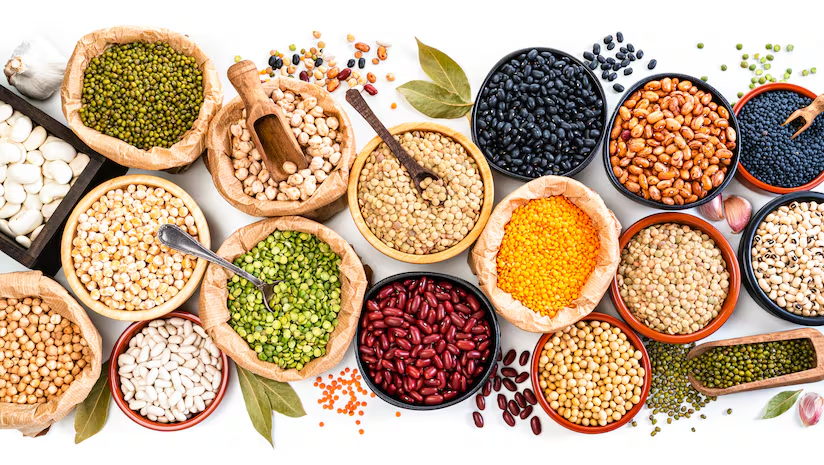



India's Department of Consumer Affairs launched a Kharif 2025 program to boost arhar and urad cultivation, aiming to reduce pulse imports and enhance food security. Initiatives include seed distribution via NCCF across seven states, financial support, and a 100% MSP procurement guarantee, strategically addressing rising demand and dependency risks.

Copyright infringement not intended
Picture Courtesy: FOOD NAVIGATOR
The Department of Consumer Affairs has started a special program to reduce the import dependency of Pulses.
The main goal is to promote the cultivation of pulses, especially arhar (also known as tur or pigeon pea) and urad (black gram), during the Kharif season of 2025, to help India become more self-reliant in food production and reduce the need to import pulses.
|
India's domestic pulse production has increased from 163.23 lakh tonnes in 2015–16 to 244.93 lakh tonn in 2023–24. India's imports of pulses doubled in 2023–24 compared to the previous year, reaching 47.38 lakh tonnes, valued around $5 billion. |
The Department of Consumer Affairs, which is part of the Ministry of Consumer Affairs, Food and Public Distribution, is leading this program. They are promoting arhar and urad cultivation through campaigns that distribute seeds to farmers. The National Cooperative Consumer’s Federation of India Ltd. (NCCF) implements these campaigns.
The program is expanding from a successful pilot in two districts of Jharkhand to 12 districts across seven states: Jharkhand (Palamu, Latehar, Garhwa), Uttar Pradesh (Mirzapur, Lalitpur), Bihar (Gaya, Jehanabad), Karnataka (Vijaypura), and unspecified districts in Manipur and Tripura.
|
Aspirational Blocks are underdeveloped areas that NITI Aayog identifies for rapid improvement across various sectors like health, education, and basic infrastructure. The program works to improve governance and living quality in these less developed blocks by combining existing government schemes, setting clear goals, and constantly monitoring progress. |
Money for Seeds => The government allocates ₹1 crore for distributing seeds to farmers.
Guaranteed Purchase => If the market price for pulses falls, the government guarantees they will buy 100% of the harvest from farmers at a Minimum Support Price (MSP). This ensures farmers do not lose money if prices drop. For the Kharif Marketing Season 2025-26, the MSP is ₹8,000 per quintal for Arhar and ₹7,800 per quintal for Urad.
Must Read Articles:
Government's 6 year mission to boost pulses output
Source:
|
PRACTICE QUESTION Q. Discuss the role of the Public Distribution System (PDS) in ensuring food security for the vulnerable sections of society. What reforms are needed to make it more efficient and leak-proof? 250 words |






© 2026 iasgyan. All right reserved